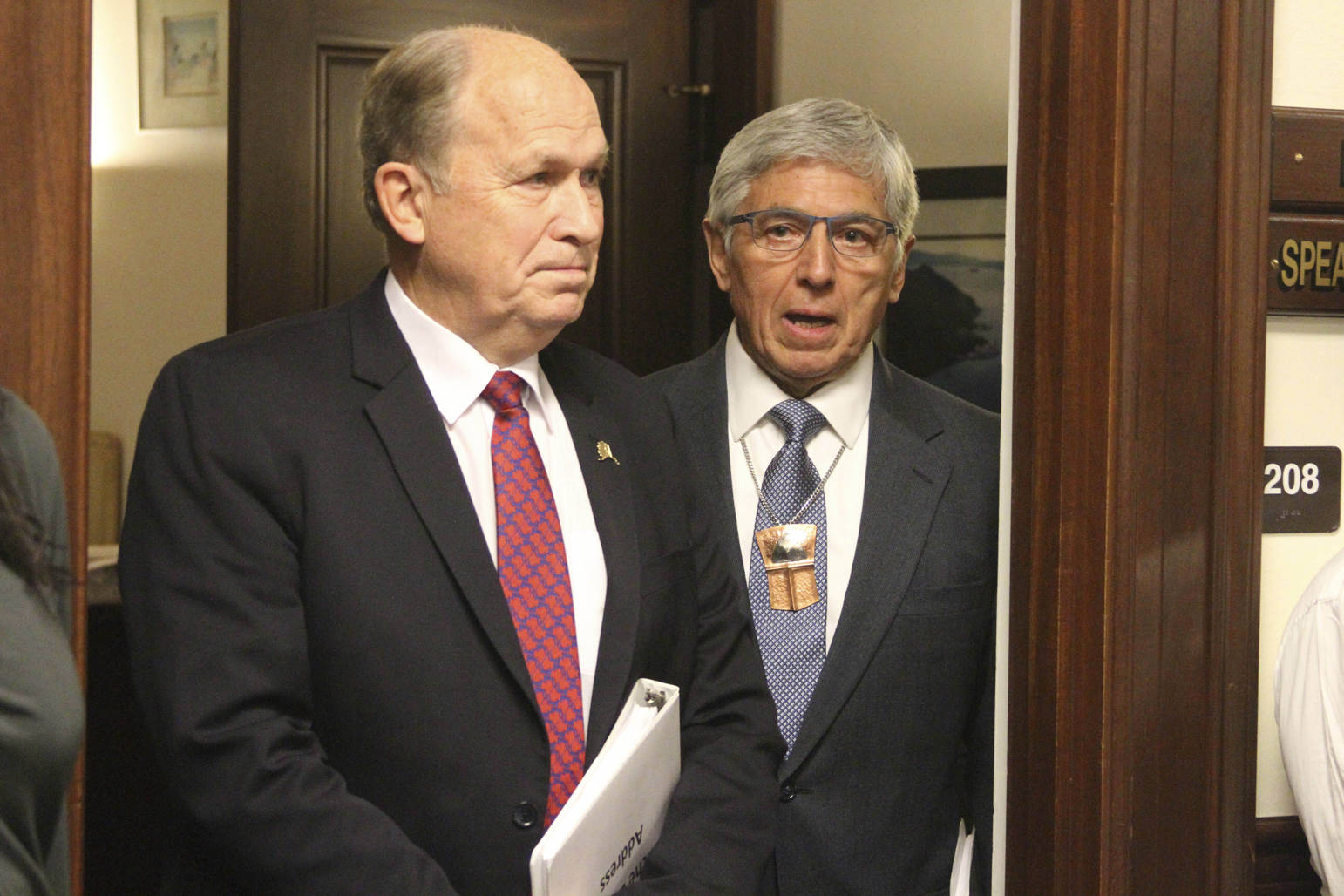JUNEAU — In his fourth year in office, Alaska Gov. Bill Walker is looking for a major win on an issue that has vexed him throughout much of his term: tackling the state’s multibillion-dollar deficit.
Speaking before a joint session of the Alaska Legislature Thursday evening for his State of the State address, Walker said Alaska’s prosperity hinges on solving that problem.
“The longer we hold onto partisanship, the longer we hold onto the deficit,” he said, adding later that “compromise is not capitulation.”
Walker, a one-time Republican no longer registered with a party, isn’t likely to get a total fix this year; he didn’t even ask for one after prior efforts to pitch new or higher taxes as part of a deficit-resolving solution failed.
But circumstances might force action on one issue on which there’s been general agreement between Walker and lawmakers: that some use of earnings from Alaska’s oil-wealth fund, the Alaska Permanent Fund, will be needed to help cover government costs amid a continued slump in oil revenues.
Lawmakers, unable to agree on a long-term fiscal plan, have been using savings to cover costs, drawing criticism from Walker. After years of large draws, that fallback option may not be there for next year’s budget, according to the Legislative Finance Division.
How money is drawn from permanent fund earnings — and how that ultimately affects the annual dividend Alaska residents receive from the fund — remains unclear. For the last two years the formula for paying out dividends hasn’t been followed and the size of the check has been limited, decisions attributed to the state’s fiscal woes.
A number of Democratic lawmakers, and some Republicans, have called for constitutionally guaranteeing a dividend. State GOP leaders also have urged a constitutional amendment on the dividend.
Walker, who is seeking re-election this year, said the state will continue to pay a dividend. But he also said the state lacks a financial connection between its economy and government services. Alaska has no personal income or statewide sales tax.
He is calling for a wage tax to help pay for deferred maintenance and community infrastructure projects, pitching it as a way to create jobs. He proposed a similar wage tax to help address the deficit during a special session last fall. Lawmakers did not act on it and the Republican-led Senate, which killed an income tax plan last year, doesn’t appear to have budged from its position.
Senate President Pete Kelly, a Fairbanks Republican, told reporters earlier this week that at this point, the Senate is “not that interested in taxing working Alaskans.”
Jeremy Price, state director for Americans for Prosperity-Alaska, said that if any legislator votes for a tax increase this session, his organization “will make sure every one of their constituents knows about it.” Most legislative seats are up for election this year.

